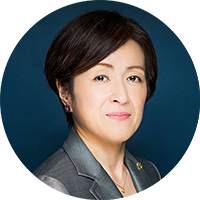Coach's VIEW is a business column authored by executive coaches in COACH A, aimed at providing valuable insights and effective approaches for leveraging coaching to foster organizational and leadership development. The column draws on the latest coaching trends and data, as well as insights from notable global publications on coaching.
Creating a Team That Is Not Dependent on a Genius

When we encounter the word "genius," we often envision a single person with a high level of talent, but there is an alternative concept called "Collective Genius". If you bring together outstanding talent from all specialized fields, they can outperform a single genius. Also, even if each individual is an ordinary person, if they cooperate with each other by leveraging the most of their individual talents, they can deliver valuable contributions to the world. In Japanese expression "Two heads are better than one." "Collective Genius" is a well-known philosophy of organizational management at General Electric (GE). (*1)
While the idea of "Collective Genius" is notable, it is also true that simply gathering people with knowledge and talents may end up as just a group of people. In order for an organization to function well with "Collective Genius," it is essential that individual talents and accumulated information are organizationally combined. Given this, what are the elements necessary for them to be "organizationally combined"?
Why Is "Psychological Safety" Called Out Today?
The other day I watched a TV program featuring an interview with Dr. Svante Pääbo, a faculty member at the Okinawa Institute of Science and Technology Graduate University, who was awarded the Nobel Prize in Physiology or Medicine for 2022.
The interviewer asked him, "What is the most important thing in pursuing research?"
Dr. Pääbo replied, " First and foremost, it is important to have a team with a culture that allows everyone to bring their ideas to the table. Teams are smarter than any individual. You need a culture where everyone feels free to share their ideas and not afraid to be wrong."(*2)
This statement by Dr. Pääbo would be true. On the other hand, it is difficult to create the kind of environment that Dr. Pääbo describes. In recent years, we keep hearing the term "psychological safety" everywhere, which tells us, in turn, how difficult it is to create a psychologically safe place where we feel free to speak up without fear of being wrong.
Why Is It So Difficult to Create a Psychologically Safe Place?
Through my experience as an executive coach, I believe there are two primary reasons.
One reason is that we subconsciously have the instinct to stand above the other person in order to gain "momentary triumph". This instinct may be similar to the instinct for survival as a living species.
The second reason is that people like hierarchy. I believe that this is because it is easier for us to live under a Hierarchy. In a hierarchical relationship, there is an unstated rule that the "subordinates" listen to what the "superiors" say. Even if both parties have different opinions, as long as this rule is sustained, there is no need for conflict. Given this situation, however, as long as the rule is maintained, there will never be any "different opinions" from the bottom up.
In other words, this phenomenon is not caused by any particular individual, but by the nature of people.
It seems that we are a species that, if left unchecked, will automatically behave in ways that jeopardize each other's psychological safety. Without recognizing this premise, merely talking about psychological safety will not guarantee it in real life.
How about we recognize this fact first and start from there?
Change What Stays the Same
"When it comes down to it, we are controlled by our leader. It is not something that can be easily changed." A top guy, the head of the research division of a precision equipment manufacturer said. He believed that the company would not be able to survive unless it could offer a secure place for young people to speak up and come up with their own ideas. He shared his concern with the executives, and they discussed how to improve the situation. However, the current organizational culture did not improve much.
"When we invite young members to meetings, the executives neither make eye contact with them, nor greet them in a welcoming manner. All they do is to criticize the young members' ideas. It inevitably leads them to feel that they will never come to meetings to share their ideas again. In fact, it also has happened to me in the past." he said.
He came to realize that it would be meaningless in suggesting to the executives only, "It is important to create a psychologically safe place for young members."
He tried to create a phrase for all executives to share in encouraging behavioral change among the senior management team. After six months of discussion with the executives, we came up with this phrase.
"Go ahead without permission"
Given that phrase, he did not even expect them to make eye contact with young members, nor greet them in a welcoming manner. Instead, he just expected executives to give more opportunities for young members to try new things with their own new ideas.
They have worked along with that phrase during the last 4 years and became a global sufficient organization as a top laboratory in their industry.
We all know it would be better if they could create an environment where executives could greet young members in a welcoming manner. However, I also believe that in his organization, more young members could share their ideas without any fear that they might be wrong with the shared phrase among executives.
What do you think you need for all the members in your organization in order to share the knowledge and capabilities in more efficient ways?
If you try to describe it in one phrase, what would it be?
【REFERENCE】
(*1)What Makes a Great Leader? Harvard Business Review, Feb, 2023
written by Linda A. Hill, Emily Tedards, Jason Wild, Karl Weber
translated by Yukari Takahashi
(*2)Dr. Svante Pääbo wins 2022 Nobel Prize in Physiology or Medicine - What Is Essential in His Continuous Research? NHK News, Feb 2nd, 2023
*Regardless of profit, non-profit or intranet, secondary use such as copying, diversion, selling etc. is prohibited without permission.
Language: Japanese

